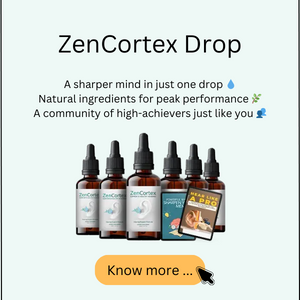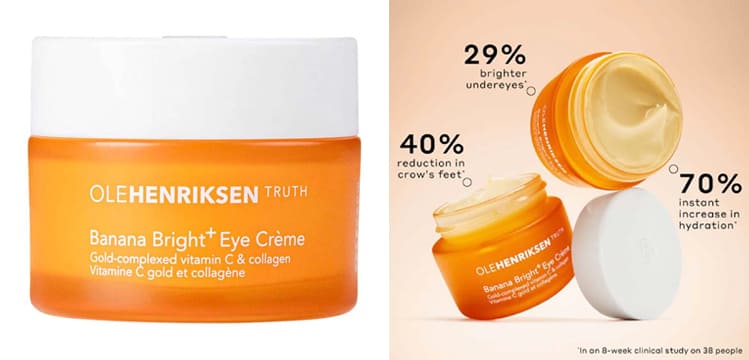Supplements Promise Natural Allergy Relief—But Do They Actually Work?
The spring allergy season has arrived, meaning that millions of people across the United States are now contending with runny noses, itchy eyes, and congestion.
According to the Centers for Disease Control and Prevention, about one-quarter of adults in the United States have a seasonal allergy.
While allergy medications abound, a collective shift toward natural ingredients in the U.S. means that manufacturers and influencers alike are touting the benefits of pills, powders, and other types of supplements to combat sneezes and sniffles. Options include botanicals like quercetin, stinging nettle, and butterbur, as well as vitamins and minerals like zinc and vitamin C.
But do supplements really work for allergy relief? Experts say the science is limited.
“Anything that we recommend, it goes back to how comfortable we feel with understanding both the risks and benefits,” Shikha Gupta, MD, a board-certified allergy and immunology physician, told Health. “The biggest downside of supplements is that we don’t have that data.”
Read on to learn which popular supplements show promise for allergy relief, which may have unintended consequences, and other ways to reduce allergy symptoms.
Seasonal allergies occur when the immune system interprets certain airborne substances, like ragweed or tree pollen, as a threat and overreacts.
In spring, tree pollen is the greatest allergy offender. In summer, it’s grass, and in the fall, it’s ragweed and mold. Some people also suffer from “perennial allergies,” or year-round allergies often caused by pet hair or dust mites.
When the immune system senses these triggers, it releases chemicals like histamine to defend the body. The release of histamines causes many of the physical symptoms associated with allergies, such as a runny nose and sneezing.
“Allergies are an example of how the immune system is really overactive—it’s overreacting to essentially harmless triggers like the dander from a pet, or a dust mite, or pollen,” Joshua Davidson, MD, MPH, a board-certified allergist and immunologist, told Health.
Unfortunately, there are no supplements that definitively fight allergies, according to allergists interviewed by Health.
“We believe that there are supplements and things that we could be using and studying more, and we’re actively doing that,” said Gupta. “But studies require statistical significance for us to make recommendations, and we’re not there yet.”
Although researchers are still studying exactly how supplements do (or don’t) affect allergy sufferers, some ingredients show more potential than others for reducing symptoms.
One of these supplements is vitamin C. The nutrient, found in many fruits and vegetables like oranges and red peppers, has been shown to have natural antihistaminic and anti-inflammatory properties.
According to Andy Nish, MD, a board-certified allergist and immunologist, vitamin C is probably the most well-studied supplement for allergy relief. Some small studies have shown that taking vitamin C might reduce both the amount of histamine produced by the body and common allergy symptoms, such as sneezing, runny nose, and itching.
“It’s also very safe, well known, easy to get, inexpensive, and if you take too much, you know your body excretes it,” said Davidson. “It’s hard to go too far with it. So I like it for that reason.”
Quercetin is another supplement people seek out to quell allergy symptoms. The flavonoid, or plant compound, is naturally found in many foods like onions, berries, apples, and broccoli, but you can also buy it in capsule and powder form.
Some research shows that quercetin can likely decrease histamine release, inflammation, and asthma symptoms, and small early clinical trials also indicate that taking quercetin daily might reduce symptoms like sneezing.
If you want to get more quercetin, however, Gupta recommends opting for quercetin-rich foods rather than a supplement.
Surprisingly, probiotics may also impact allergies. Early studies indicate that the gut microbiome may have a connection to conditions like eczema, hay fever, and asthma. So it’s theoretically possible that getting more probiotics—either by eating kimchi, yogurt, and other foods containing them or through a supplement—could reduce seasonal allergy symptoms. However, more research is needed to know for sure.
Just because a substance may seem “natural” doesn’t mean it can’t be harmful. In fact, allergists told Health that several supplements might actually make allergies worse.
For example, stinging nettle is often touted as a natural antihistamine that can be taken as capsules or consumed in teas. However, studies have shown mixed or little impact on allergy symptoms.
In fact, Davidson warned that stinging nettle might have the opposite effect: “If you’re allergic to weed pollens, for example, and nettle is a weed, you could get into flares.”
Butterbur, another herbal supplement marketed for allergy relief, can actually cause allergic reactions in people already sensitive to ragweed, marigolds, daisies, or chrysanthemums, Nish said.
More seriously, some studies suggest that butterbur supplements that are not processed correctly might impact the liver or be associated with increased rates of cancer.
“You’ve got to be careful with that,” said Davidson. “I honestly don’t ever really bring [butterbur] up, at least with patients.”
Most doctors might not point you to the supplement aisle for allergy relief, but there are many strategies they do recommend. In general, physicians often approach treatment options for allergies in three phases: avoidance, medication, and exposure therapy.
Avoidance is just what it sounds like—minimizing exposure to whatever allergen triggers a response. This might look like keeping home or car windows closed to avoid pollen, Davidson said. Air purifiers with HEPA filters can also help, as they capture pollen and prevent it from recirculating through your home. Showering in the evening also helps wash away any allergens in hair or on skin before bed.
“If you can reduce your exposure before you even consider a medicine or a treatment of any kind, then maybe you don’t need as much on the treatment front—and that’s great,” said Davidson.
If avoidance isn’t enough to alleviate symptoms, allergists may recommend well-known over-the-counter medications like Allegra, Claritin, or Zyrtec. These medications are antihistamines, meaning they work by reducing or blocking histamines released by the body.
Doctors may also point you to nasal steroids like Flonase, which work by targeting and reducing inflammation in the nasal passage.
Davidson said it’s also important to remember that allergies are inflammation, meaning that activities that help manage immune response generally might reduce allergic inflammation as well. For example, he talks to patients about using exercise, which has anti-inflammatory effects, to help with allergies.
If both avoidance and OTC medicines are ineffective, an allergist may suggest exposure therapy in the form of shots, which help people become less sensitive to their allergy triggers over time.
Above all, experts stressed the importance of contacting a doctor to discuss options rather than taking a supplement and hoping for the best.
“For allergies, there’s no need to suffer,” Nish told Health. “Go see your doctor, come see an allergist—we have a very high likelihood of success and minimizing symptoms.”
Share this article:

:max_bytes(150000):strip_icc()/Health-GettyImages-1214106997-b552ab5705634ac584eefac1e213186e.jpg)










